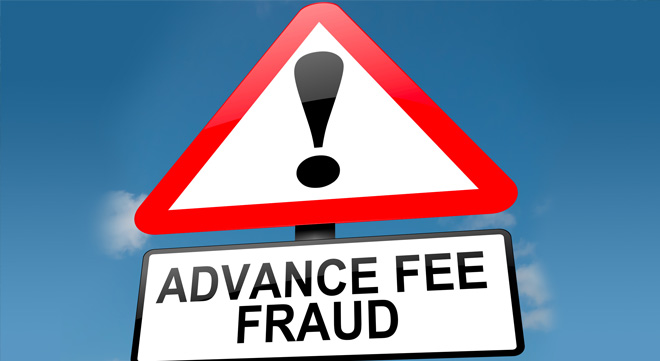Requests for upfront fees before a loan will be paid into your bank account is one of the clearest signs of credit fraud, warns MicroFinance South Africa (MFSA).
MFSA is the largest microfinancing association in South Africa that represents more than 1 500 registered microfinance credit providers and service providers to the industry
“Scammers are taking advantage of the increasingly desperate need for consumers to access cash and are highly active in impersonating online lenders. They pose as registered credit providers and offer large loans with no credit checks, often targeting those who are most financially vulnerable,” says Leonie van Pletzen, the chief executive of MFSA.
“Increased reliance by consumers and businesses on online platforms has led to a significant rise in scams and fraudulent activity. Through phishing, smishing, and social media scams, victims are tricked into sharing personal details, downloading malicious software, or making payments to fraudsters.”
Van Pletzen says consumers should never pay any fees upfront before they receive the loan in their bank account. This is known as an advance fee scam.
Scammers present these upfront fees as required for “insurance”, “processing”, or “administration”.
“Legitimate lenders deduct fees from the loan amount and never ask for upfront payment,” Van Pletzen says.
Consumers should also be careful responding to email offers and completing an application that is then emailed back. Online lenders require an application to be completed on their website or app, not via email, Van Pletzen says.
If you receive loan application forms (PDF or Word) via email to complete and return – particularly when the loan was initiated online – this can be a red flag. Most legitimate online lenders will require you to complete the application securely on their website or app, not via editable email attachments, which are commonly used in scams. This is an industry best practice that enhances data security and helps consumers to avoid falling victim to phishing or impersonation scams.
If you are sent a URL link to a provider’s website, up should check the URL address to make sure it belongs the company they are expecting it from.
If the loan process was initiated in person – for example, at a branch – then it is more acceptable for application forms to be emailed, and it is often standard practice for supporting documentation to be emailed to clients.
Van Pletzen adds that individuals should also be wary of websites that offer big loan amounts at very low interest rates, or that offer loans where the fees or interest is outside what is legally allowed. This includes:
- Charging interest or fees above the legal maximum;
- Failing to disclose the total cost of credit; and
- Omitting compulsory disclosures, such as initiation fees, monthly service fees, and credit life insurance terms.
The NCR sets the maximum prescribed interest rates and fees. If a rate is far below the market norm, it could be an attempt to lure consumers into a fraudulent transaction.
Red flags
MFSA urges consumers to watch out for the following red flags when applying for loans online:
No credit checks
Consumers are offered “guaranteed” loan approvals without the need to review their credit history or income. Legitimate lenders will assess whether you can afford a loan, as required by the National Credit Act (NCA).
No formal contract
You are not provided with documentation or required to sign a loan agreement; instead, you are asked to rely on screenshots or verbal promises.
Not registered with the NCR
A credit provider that does not register with the NCR is prohibited from offering or extending credit, and non-registration renders any credit agreements entered into void.
Consumers should check whether a credit provider is registered on the NCR’s database. Go to https://www.ncr.org.za/ > Registrants > Credit providers. Although the database is updated regularly, there may be occasional lags in removing deregistered providers.
Consumers should always verify:
- A provider’s registration number;
- The provider’s exact business name; and
- Whether the provider is listed under that number on the NCR site.
All registered credit providers must display their NCR registration certificate, which includes their unique NCR registration number, at their business premises where they conduct credit activities.
Registered providers are also required to display their NCR registration number on all consumer-facing communication, including loan agreements, marketing material, websites, emails, and SMS messages. Failure to display this number is a strong indication of non-compliance or fraudulent behaviour.
The obligation to register and display the NCR registration number applies to any person or entity involved in providing credit, regardless of the size or number of credit agreements.
If a micro-lender claims to belong to the MFSA, you can verify this by emailing info@mfsa.net or visiting the MFSA’s website. Members are required to adhere to a strict code of conduct, and any false claims of affiliation are treated seriously.
Pressure tactics
Consumers are put under pressure to “apply now” because the “offer expires today”. Reputable lenders give you time to understand the terms of the agreement.
Lender cannot be traced
The provider communicates only via WhatsApp or Facebook. It has no physical address or verifiable online presence.
Strange email or website
The lender uses a free email account (for example, Gmail or Yahoo), and its website does not have a security certificate (no “https”).
MFSA encourages consumers to report any suspicious or potentially illegal credit activity directly through its online portal. These reports help MFSA to identify scam trends and collaborate with regulators and law enforcement to combat fraudulent credit practices.




